Are We the Baddies?
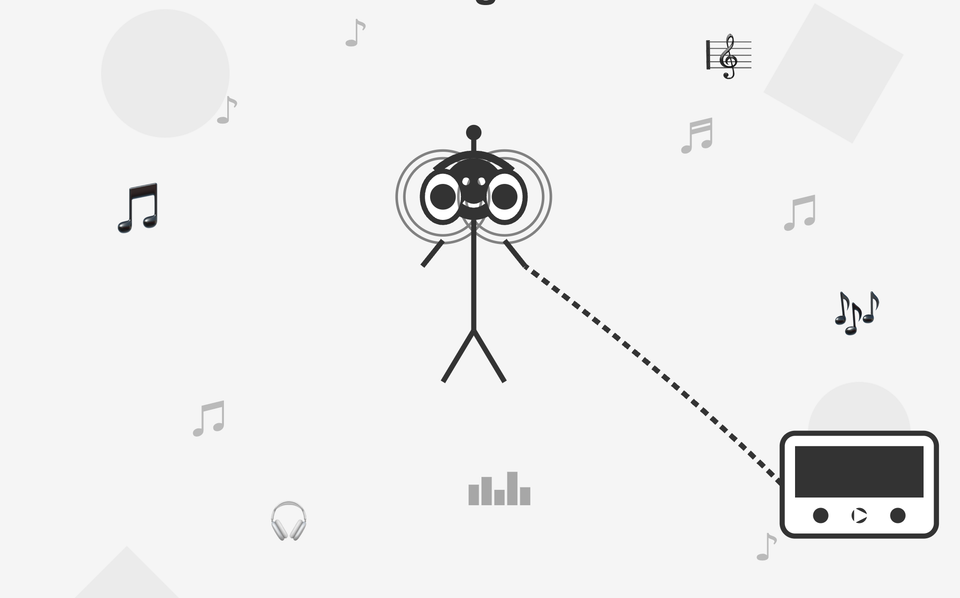
I wanted to write a bit about the ethics of LLMs and the (legitimate) concerns of many creative people who are uneasy about AI taking their jobs.
Because, unfortunately, we can already see that playing out.
As I was thinking about this earlier in the week, I saw this exchange on Bluesky, which sums up the debate incredibly well.
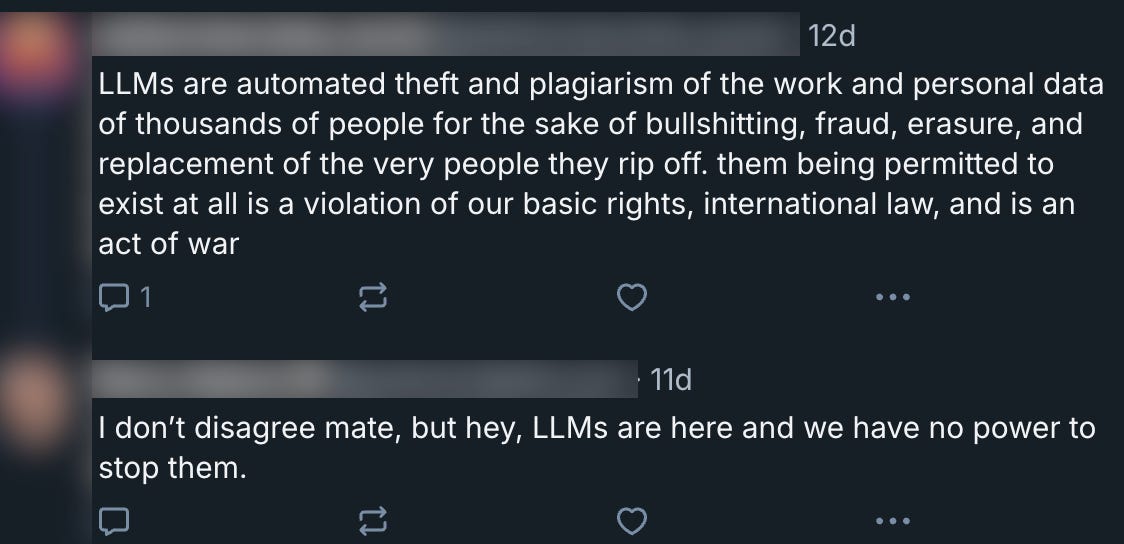
The thing is… I’ve been here before.
For most of the 2000s, I was a musician. I made my own records and sold them to fund live shows, both in the UK and overseas. I didn’t make money from my music, but I enjoyed making my own records and I got to travel a lot.
Spotify made it impossible for me to continue. Not only that, it sucked the fun out of making records as an artistic endeavor. It killed the act of making a creative idea into an object that people could own.

First problem: you have to pay money to be on Spotify. Here’s one of my receipts from 2012. It might be cheaper now, I don’t know.
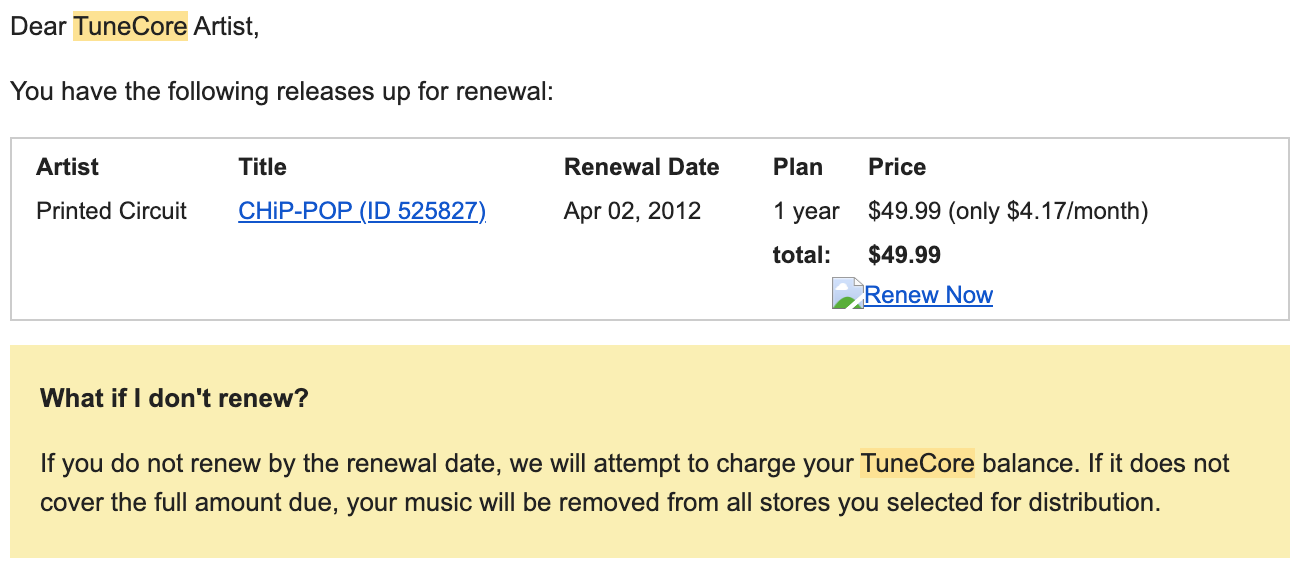
I had to pay to put music onto iTunes as well, but that wasn’t an issue. Selling downloads covered the cost. With Spotify, I was paying money for them to deliver content, with no hope of getting it back.
(To put this into perspective, Lady Gaga earned $167 for 1 million streams of ‘Poker Face’. That was news in 2011, about 6 months before the transaction in the screenshot.)
Spotify turned music into a service. That was its stroke of genius. It turned a product into a never-ending subscription. It’s not the only business to have done that. My beef is that Spotify charged for access to something it didn’t own, ran ads that frequently interrupted the content, and paid (best I can tell) about $0.000029 per stream to the artists who were feeding the whole machine.
FYI: the company now has assets of $9bn, according to Wikipedia.
So, when people say AI companies are charging for something that isn’t theirs, I agree, and I feel a strong sense of déjà vu.
Equally, when people say we have no chance of doing anything about the way LLMs have been trained, I agree with that too.
The New York Times is one of the few publishers that can afford to try. It brought a case against OpenAI which has been rumbling on for close to a year. In the past month, OpenAI has deleted the NYT’s evidence. In a way, this just proves that we’re past the point of no return.
Ironically, I’ve worked as a freelance writer ever since I stopped making music. I know full well that all the millions of words of content I’ve written have been gobbled up by LLMs and used to generate more of the same, but without me getting paid for it. Perplexity is known to have ignored robots.txt, one of the few defense mechanisms we’re supposed to have as creators.
What am I going to do about it? Realistically, what can I do? What can any of us do, unless we have the money that the New York Times has?
I see it this way: we have two choices. We can put up a barrier and refuse to engage with AI, which will mean LLMs take even more of our jobs than they already have. Or we can use the tools we have to try to stay at the top of our game, which is the option I’ve chosen.
I don’t always feel good about it, but Spotify steamed ahead with its business model, and I think AI companies will do that same thing, irrespective of the legal or ethical questions.
Some bits to finish for this week:
✨ SparkToro released a huge study on how people really use Google. Absorbing this will be my project for the weekend. But here’s one statistic that jumps out at me: transactional keywords make up just 0.69% of search queries.
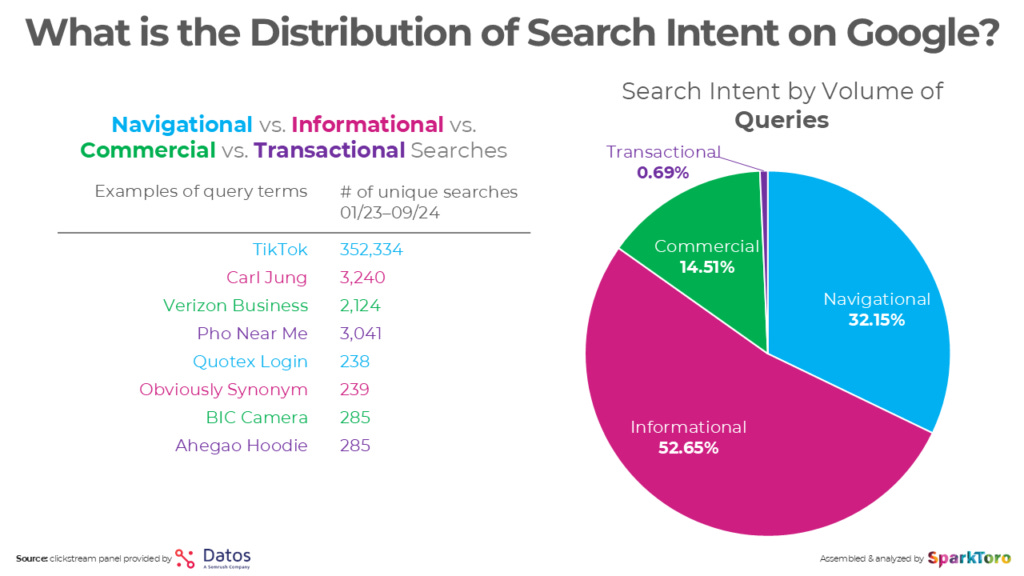
👾 I’m currently testing Jenova. It combines GPT 4o, Sonnet 3.5, Gemini 3.5, and Grok 2 into one interface and automatically picks the best one for your task. Access is free and there’s a paid tier for $15/mo.
🎧 ElevenLabs has added its own version of NotebookLM to its free iOS app. You can use it to create AI-generated podcasts of PDFs, ebooks, and articles. These podcasts just aren’t for me, but I can see why some people like them.
👩💻 Claude now lets you specify your work function and personal preferences for the way it responds. These instructions apply across all chats, not just Projects.
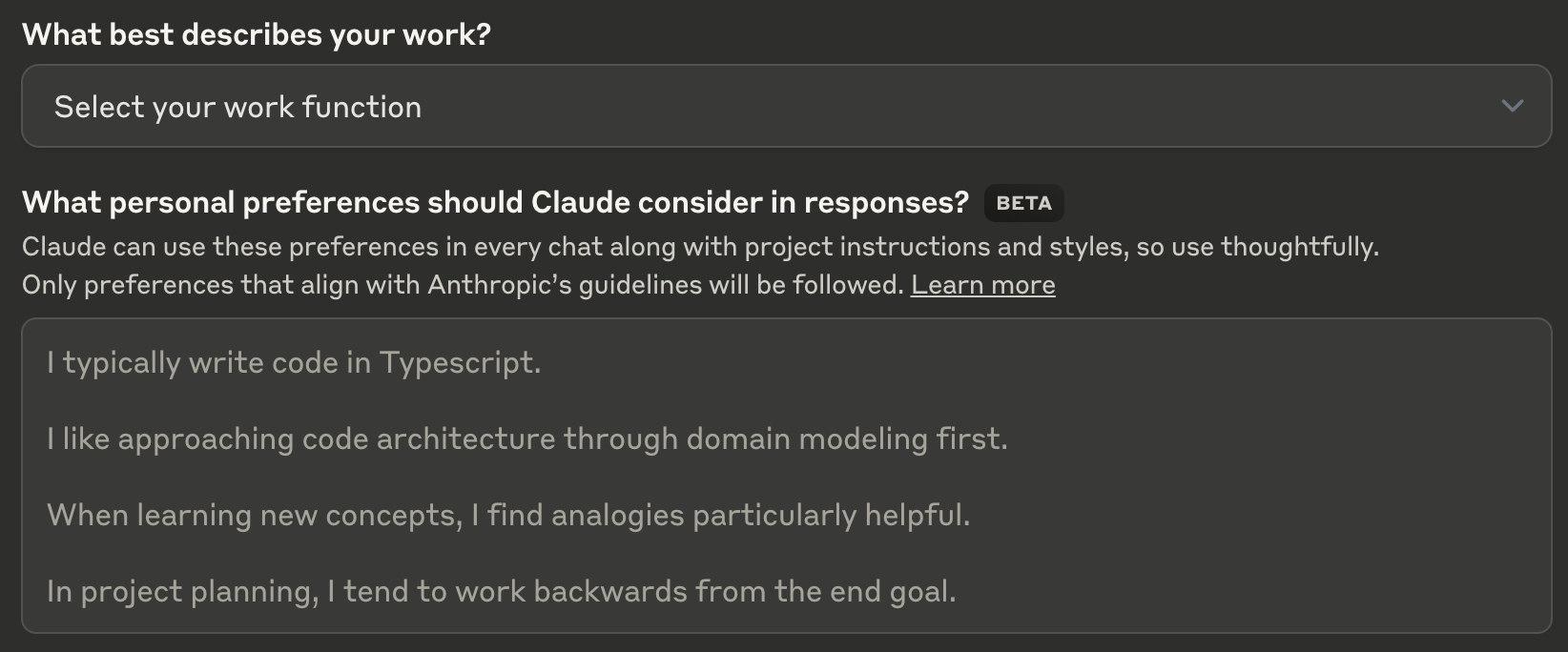
💳 Perplexity is testing shopping agents by giving the AI virtual debit cards and letting it spend real money. Don’t get too excited: it took 8 hours to buy toothpaste. You also have to agree to a human reviewer checking your orders.
📹 OpenAI is due to release Sora officially today, but it has already been leaked on HuggingFace. Artists involved in the leak said OpenAI exploited them by using them as free labor.
☁️ More evidence that Bluesky is taking off: some publishers are reporting 3x engagement and conversion rates. And according to SEJ, “Bluesky’s decentralized system and focus on user control allow SEO content to stay visible longer and reach a bigger audience.”

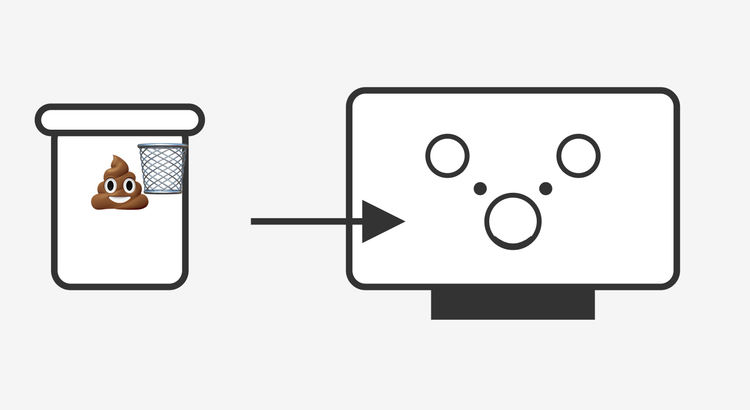
Comments ()